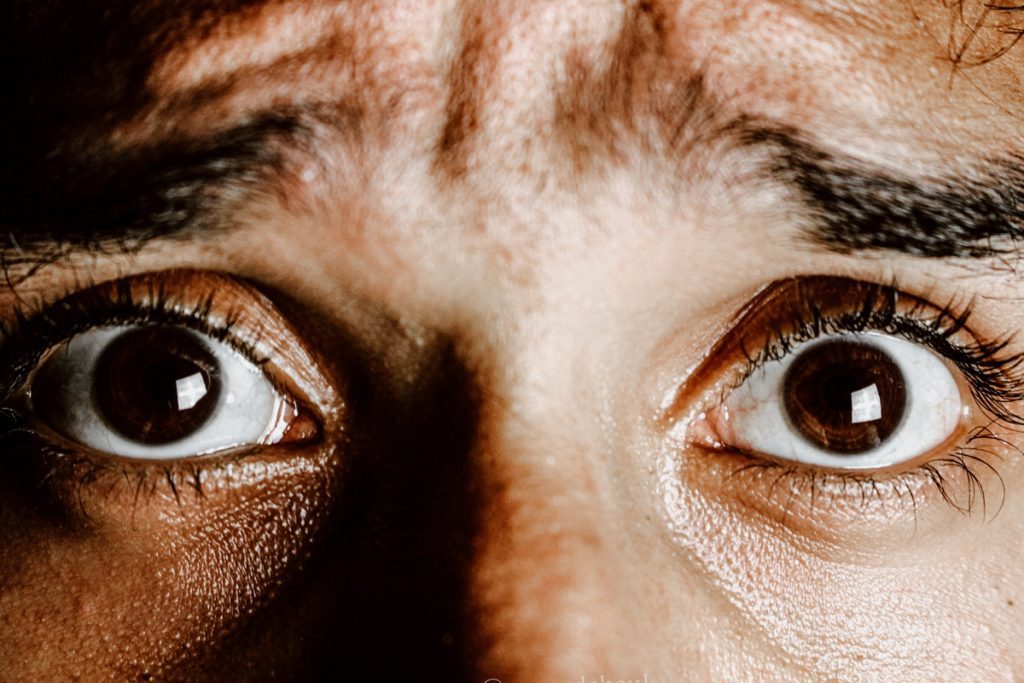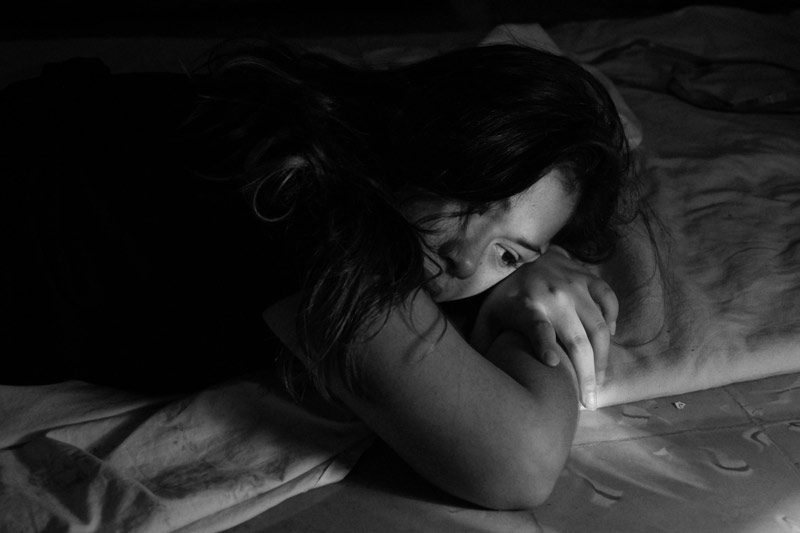When we talk about eating disorders, most people picture young women battling anorexia or bulimia. But the reality is much broader and far less recognized. About one in three individuals with an eating disorder is male. In the U.S. alone, millions of boys and men will struggle with food, body image, and disordered eating at […]
Our Latest Blogs
Have you ever found yourself reacting strongly to something and not understanding why? Maybe it was a smell, a sound, or a certain situation—and suddenly, you felt anxious, angry, or overwhelmed. It’s possible that what you experienced was tied to a repressed memory. But what exactly are repressed memories, and how do they affect your […]
Maybe no one knows what happened to you. Or maybe too many people know, but no one gets how it still affects you. Healing after abuse is deeply personal, and it rarely makes sense to people who haven’t lived it. You’ve likely done what you could to survive, but surviving is not the same as […]
Have you ever struggled to recall a painful memory, only for it to resurface unexpectedly—raw, vivid, and emotionally intense? You’re not alone. This phenomenon, often referred to as repressed memories, is common among trauma survivors. But why does the brain choose to hide certain experiences? Is it a survival tactic, a neurological glitch, or something […]
Have you ever caught yourself responding to a situation with your mother’s exact words—the same words you swore would never leave your lips? Or perhaps you’ve wrestled with a constant knot of anxiety that has no apparent connection to your life experiences. These moments aren’t mere coincidences or personality quirks. They may grow out of […]
Growing from an overlooked subject to a major topic of healthcare debates, mental health has achieved significant visibility in recent years. Trauma, stress, and emotional struggles affect almost every aspect of modern life, impacting our relationships, productivity, and general well-being. More people are actively seeking help as awareness of mental health issues rises. Mental health […]
There’s a great deal of focus at the moment on the mental health challenges of younger populations. Examples are the impact of social media on self-harm and suicide rates or the rise of burnout in the culture of overwork. These are vital points of concern that deserve attention. Yet, one issue that tends to get […]
Motherhood: a wild rollercoaster ride where one moment you’re cooing over your adorable newborn, and the next, you’re wondering if you will ever sleep again. Between the endless diaper changes and midnight feedings, it’s no wonder many moms find themselves on an emotional tightrope. But feeling overwhelmed doesn’t make you a bad mom. In truth, […]
Depression, a mental health disorder characterized by persistent sadness and loss of interest, has become increasingly common across generations. However, Generation Z (those born between 1997 and 2012) reports significantly higher rates of depression than older generations. According to research conducted by the Walton Family Foundation, 42% of Gen Z battles with depression and feelings […]
Last month, I lost my Auntie Lee. She was my godmother, my second mother, and my mom’s best friend of 65 years. Her passing added to my numbness — a feeling that has been intensifying over these past two years after suddenly losing my brother-in-law and a lifelong family friend. In my mind and my […]
Bipolar disorder affects over 2.8% of adults throughout the United States. This condition causes frequent shifts in mood, energy, activity level, and one’s ability to complete everyday tasks. Although less frequently spoken about, hypersexuality is a symptom that affects many people living with bipolar disorder. Understanding the link between bipolar disorder and hypersexuality is an […]
The effects of domestic abuse don’t end the moment the mistreatment stops. Once victims have exited an abusive situation and removed themselves from immediate danger, the ordeal can still feel far from over. Survivors may find themselves asking, What’s next for me? How do I move on? What now? Recovering from domestic abuse is a […]
Post-Traumatic Stress Disorder (PTSD) can develop after experiencing or witnessing traumatic events, such as natural disasters, violent crimes, or motor vehicle accidents. While the circumstances of these traumas may vary, the emotional and psychological effects often overlap, manifesting as anxiety, intrusive thoughts, and a sense of being stuck in the traumatic moment. Understanding how different […]
Self-harm and self-mutilation, especially among adolescents and young adults, are complex and sensitive issues that can be challenging to recognize. Young people going through difficult times may turn to self-harm as a way to express emotions they can’t verbalize. These feelings may initially seem manageable but can later evolve into significant, often overlooked, issues. In […]
What Are ADHD and Depression? ADHD (Attention-Deficit/Hyperactivity Disorder) and depression are two distinct mental health challenges. Yet, they frequently intersect, creating a complex feedback loop that impacts individuals in various aspects of life, including workplace performance. ADHD is characterized by symptoms such as inattention, impulsivity, and hyperactivity stemming from neurological differences that impair executive functions. […]
In today’s world, most of us rely on our phones, computers, and other devices to connect with others. However, many people diagnosed with autism spectrum disorder (ASD), have more trouble regulating their use of these devices. There is a growing concern that more people on the autism spectrum are becoming addicted to digital media. Due […]
There has been a rise in awareness of narcissistic abuse in the past decade. Countless pop psychology videos can be found explaining the zero-sum game of the pathological narcissist, helping victims sort through the disorienting fallout of a psychologically abusive relationship. Many professionals have attempted to discredit these influencers, calling it unwarranted panic. The prevalence […]
Anxiety is often experienced as tension, fear, or worry when you face perceived or real threats. It is the body’s response mechanism to danger and can be provoked in non-dangerous situations such as public speaking, important events, or social environments. While most people experience anxiety, too much of it can impair your quality of life […]
Suicide is an issue that affects families, friends, and communities across the globe. It’s hard to believe, but someone dies by suicide every 11 minutes in the United States. Still, despite the prevalence of suicide, it’s often a topic shrouded in silence and shame. Today, we hope to break that stigma by providing a guide […]
There’s a concept in psychology called anticipatory anxiety. It is a fear or worry about something that could happen in the future. This sort of anxiety generally happens because of our desire to control or foresee future events. Yet, despite our deepest longing to do so, we are always bound to miss something. Take Tim, […]
Acceptance and Commitment Therapy (ACT) is growing in popularity. Therapists value its strength-based and compassionate approach, while clients appreciate its action-oriented results. Although a Licensed Therapist is trained and qualified to help diagnose and treat mental health disorders, you can implement techniques of ACT into your own life. By practicing the skills taught in ACT, […]
Anyone can be impacted by depression, a serious mental health condition that can even affect friends and family. Early detection of the symptoms and understanding how to assist can profoundly impact someone’s life. This guide offers crucial details on how to spot depression in a friend and what to do in the event of a […]
Most of us have a general idea of what anxiety is – and perhaps you even know what it feels like. But how would you know the difference between healthy, contextual anxiety (such as that anxiety you feel standing at the edge of a cliff looking down) versus anxiety that is maladaptive? Anxiety is supposed […]
It is widely assumed that a pause in a relationship means the couple is only a few steps away from a complete separation, which is not always the case. Many couples take a break from each other to meditate, introspect, and, hopefully, strengthen the relationship. However, for individuals who tend to develop separation anxiety, this […]
Anxiety and depression often co-exist, filling a person with negativity. At some point, these two things affect almost everyone alive, manifesting uniquely in each person. The level of depression and anxiety varies for everyone, but even when they seem to get out of control, there are several ways to manage both. According to a report […]
Travel anxiety is a common issue that affects many travelers. The thought of traveling can bring about feelings of stress, fear, and hesitancy. These feelings can arise from various concerns, such as: This article will provide eight methods to help you overcome travel anxiety before and during your trip. 1. Start Early on Your Plan […]
It is a blessing to make it to the later stages of life. You have a lifetime of experiences behind you. However, this can also make aging quite tricky. Your older years will undoubtedly bring unique challenges, opportunities, and adjustments. One of the most notable transitions is how you may have to navigate mental health. […]
When it comes to mental health recovery, there’s something profoundly powerful about connecting with someone who’s been in your shoes and can relate to what you’re going through. This article explores the expanding role of peer support in mental health recovery, an effort led by individuals who themselves have faced mental health challenges. In this […]
I won’t be able to handle it. It’s too risky. Better to be safe than sorry. I had just washed my hands at my sister’s house and was staring at the towel hanging between the sink and the shower. It looked like it might be wet, so I knew someone else had used that towel. […]
Constructing a diagnostic manual for the mental health professions is not a straightforward task. Unlike medical disorders, mental health conditions do not come with biological markers. There is no culture that can be taken, no blood test, no specific bacteria or virus that can be found. In short, while well-trained practitioners most often agree, the […]
Living with a mental health disorder is hard enough. It can seem like a never-ending pursuit to find the right therapist, medication, and ways to cope. The darkness and distress of conditions such as major depressive disorder and generalized anxiety disorder can leave you feeling helpless, struggling to find anything that works. Having a purpose […]
Living with co-occurring anxiety and attention-deficit/hyperactivity disorder (ADHD) can feel like a never-ending uphill climb. Having both conditions contributes to what some describe as an “extra loud” mind, characterized by racing thoughts, worries, and distractions. The intersection of ADHD and anxiety can present in various ways, from struggling with organization and time management to increased […]
As a psychotherapist, I have always been fascinated by the intricate psychiatric landscape accompanying attention-deficit/hyperactivity disorder (ADHD) and its occurrence among diverse gender categories, including transgender and non-binary individuals. Frank Vitetta from ADHDtest.ai and I decided to embark on a comprehensive study that delved deep into the intricacies of ADHD, particularly focusing on its prevalence […]
Living with borderline personality disorder (BPD) can be challenging, impacting various aspects of one’s life. This guide aims to shed light on the complexities of BPD, from understanding the disorder to resources for support and coping strategies. Understanding Borderline Personality Disorder: BPD stands for borderline personality disorder. It is a mental health condition characterized by […]
For many adults with attention-deficit/hyperactivity disorder (ADHD), the rise in work-from-home culture has been a double-edged sword. On one hand, working from home eliminates the stress of a traditional office environment and provides more flexibility. On the other, it introduces new challenges that can impede focus and productivity, amplifying the difficulties inherent to ADHD. If […]
What is Perinatal Depression? Perinatal depression is a type of depression that can occur anytime during pregnancy and up to one year after delivery. Typical symptoms of depression are a change in mood, loss of interest in daily activities, feelings of worthlessness and hopelessness, and, in some cases, suicidal thoughts. Risk factors that contribute to […]
The holidays have passed, and winter stress is one of the challenges of the season that can make us feel down. With frosty, short days and cloudy weather, it is easy to feel overwhelmed. How you approach these challenges affects how you feel. In this article, we’ll introduce you to winter blues and share some […]
I was in my late twenties when I was finally diagnosed with polycystic ovarian syndrome (PCOS) — a hormonal imbalance where the ovaries produce an excess of male hormones. After nearly two decades of irregular, painful periods, chronic inflammation, and rapidly increasing weight, I was equally relieved and overwhelmed to know what was wrong. Years […]
An optimally functioning gut has trillions of microbes living harmoniously to provide essential nutrients while protecting the body from potential pathogens. These microbes also communicate with your immune system and the rest of the body through hormonal and neural messengers known as the gut-brain connection axis. Many studies show a connection between gut health and […]
When people struggle with mental health, it can feel like no one else understands what they’re going through. This lack of understanding can create an isolating feeling that makes their struggles worse. The stigma surrounding mental health can make many afraid of sharing their mental health struggles with friends and family, worried that they might […]
When I first stepped into my role as a peer support specialist, there were so many thoughts and emotions racing through my mind. I was plagued with questions like, “Why should anyone listen to me?” and “What if I let someone down?” The weight of responsibility felt overwhelming, and the fear of failing those I […]
For years, psychologists, politicians, and policymakers have debated whether or not mental illness causes mass shootings. Due to the high rates of mental health disorders and the increase in mass shootings in the United States, people have begun to assume that the two are inevitably related. Following the occurrence of another tragic mass shooting in […]
Being partnered with an abuser can be as disorienting as it is devastating, creating challenges that are not always immediately apparent. Victims of narcissistic abuse, subjected to varying levels of manipulation and control, often find themselves slipping into patterns of codependency, defined as maintaining a relationship that is one-sided or abusive in nature.[1] Such interactions […]
Depression is one of the most common mental health disorders, though much about it is misunderstood. There are many myths and misconceptions that contribute to the stigma of depression and make it harder for people to open up about it. This article will examine some common myths and misconceptions about depression and set the record […]
At least 280 million people globally are affected by depression. Yet, it is among the most misunderstood, stigmatized, and misperceived conditions. Unfortunately, the misunderstandings and misconceptions surrounding depression can prevent people from getting the help they need. Take a look at the most common misconceptions about depression below. 1. “Depressed people simply need to be […]
For years, mental illness has been heavily stigmatized. As a result, many people refrained from seeking help for their mental health. Fortunately, attitudes have improved somewhat in recent years, and receiving mental health treatment has become a more normalized practice. However, while mental health disorders have become less stigmatized, help is still unavailable for many […]
Mental health is a crucial aspect of overall well-being. It relates to how we think, feel, and act and plays a significant role in determining our quality of life. Unfortunately, mental health conditions are often overlooked or stigmatized, leading to the neglect of necessary treatment and support. As such, a proactive approach to mental health […]
When a marriage falls apart, it can significantly impact a person’s life. One common health hazard that often accompanies divorce is depression. Feeling sad or down for a brief time after divorce is a normal reaction to the breakup of a marriage. However, an increasing number of divorced people stay in a depressive state for […]
Most people experience mental health challenges from time to time. However, the signs of a problem aren’t always obvious. Common indicators are stress, insomnia, anxiety, or depression—conditions millions of people suffer silently through each day. With all of the qualified professionals and tech-based solutions available, it is easier than ever to get mental health help. […]
Schizophrenia is a long-lasting, serious, and often disabling neurological condition that impacts an individual’s cognition, behavior, and emotions. It can make it hard to distinguish between what’s real and not real, think clearly, and make decisions. Schizophrenia symptoms include hallucinations (seeing or hearing things that aren’t there), delusions (false beliefs), and disorganized thinking. According to […]
We know it’s important for employers to support employee well-being, but for job hunters, the hard part comes before they’re hired. When you need to find work quickly or are in a difficult financial situation, job hunting can be a very stressful experience. The process of looking for a job is frequently lengthy and exhausting. […]
In 2019, after a lifelong struggle with suicidality and intense fears of abandonment, my husband was finally diagnosed with borderline personality disorder (BPD). Although we’ve since rejected the BPD label (mainly due to the stigmatization and misconceptions it can carry), having some terminology to help us make sense of his inner landscape was tremendously valuable. […]
Becoming a parent is one of life’s most exciting moments. But this event can also trigger fear, anxiety, or even depression. New moms who experience postpartum depression need to receive the right treatment to manage their symptoms and bond with their babies. Below, we’ll discuss the common causes of postpartum depression, its risks, and common […]
If you have ever experienced a sudden surge of overwhelming fear or anxiety, you may have wondered if you were having a panic attack or an anxiety attack. While “panic attack” and “anxiety attack” are often used interchangeably, they are not the same. Understanding the difference between the two types of episodes and knowing how […]
In today’s fast-paced and competitive business world, mental health has become an increasingly important issue. Mental health concerns in the workplace can affect the performance and productivity of employees, as well as the overall success of a company. Yet, despite the growing awareness of the importance of mental health, there is still a stigma associated […]
Older adults can experience mental health issues due to life changes, such as retirement or losing a loved one. They may also develop emotional problems because of physical disabilities or severe illness. Mental health and well-being are crucial in any stage of life, including older age. So, what mental health issues do older adults face, […]
Anxiety is a natural response to stress or danger, and it can manifest as feelings of fear, apprehension, or unease. It is a common experience for people of all ages, but it can be particularly challenging for seniors who may already be dealing with physical or emotional changes. Addressing anxiety in seniors is crucial for […]
We all experience various emotions, whether joy, sadness, anger, or something in between. Sometimes our emotions are hard to handle, and it can feel like they come out of nowhere and don’t even make sense to us. But the truth is that when we understand and are mindful of the environments around us, we can […]
Job loss can be one of the most challenging experiences to endure. It doesn’t matter whether it’s due to a company downsizing, economic downturn, or personal reasons. Losing your job can leave you feeling lost and vulnerable. However, it’s normal to feel a range of emotions during this time, including anxiety, fear, anger, and sadness. […]
Depression is a serious mental health disorder that affects masses of people around the world. While it is typically associated with feelings of sadness, apathy, and low motivation, it can also negatively impact energy levels. Understanding how depression affects liveliness and vigor can give you a fuller understanding of this condition and its impact on […]
Coping with mental illness has never been easy. There’s a lot involved, including your commitment to mental wellness goals and outside factors such as stigma. However, with the right routine, tools, and guidelines, you can cope with mental illness. You may wonder what those guidelines are. My battle with mental illness went on for about […]
If you have a mental health condition such as anxiety, depression, or attention-deficit/hyperactivity disorder (ADHD), you can still have a satisfying and lucrative career even as you manage your condition. It’s an outdated practice to measure success at work as a fifty-fifty split between salary and job title. There is so much more to maintaining […]
A common stereotype of mental illness is of someone speaking to imaginary beings or acting irrationally in public, not considering the effects of their behavior. Although these can be indications of a mental health problem, some other signs of mental illness are not so visible and may be hidden beneath a charming smile and clever […]
Mental health apps are a positive start toward improved mental health in 2023. This article will be especially helpful to beginning users who are confused about where and how to start. These mental health apps can benefit anyone interested in health and wellness, as well as those with mental health conditions. They’re a perfect fit […]
In September of 2022, the United States Preventive Services Task Force (USPSTF) released draft recommendations stating that all adults under age 65 should be screened for anxiety and depressive conditions. The Task Force, an independent voluntary panel of national experts in disease prevention and evidence-based medicine, cites that Americans are reporting symptoms of mental health […]
Moments of extreme trauma can have life-changing impacts on your mental and emotional health. Immediately following a sexual assault, it’s easy to feel that things will never be the same again. You will be okay. The path to recovery takes time and effort. Following the right steps can make dealing with domestic violence or sexual […]
Feeling disconnected? Do you experience dissociation? Is it so intense that you just blink and feel like a week has passed? How long were you away from your body anyway? Those are difficult questions to answer. Dissociation starts with feeling disoriented. Then there’s memory loss. I have years in my life that I don’t remember […]
Though domestic violence may leave you with scars and bruises, the harm often goes deeper than the physical. An experience of domestic violence can have a lasting negative impact on your overall well-being. One of the most common and severe effects of domestic abuse is adversely impacted mental health. Domestic abuse can leave you with […]
Sensory processing disorders have gotten a lot of recognition lately, but the condition is by no means new. It was first identified in the 1960s when Dr. Anna Jean Ayres speculated that behavioral problems in children were linked to issues with absorbing, understanding, and processing their external environments. In 2006, Dr. Lucy Miller––a student of […]
The idea of independence is associated with strength, self-sufficiency, and autonomy. While being independent is important for survival, we cannot function independently without interdependence. Interdependence is when two or more people rely on each other for support, and it is a necessary and healthy part of our physical, mental, and emotional development. Interdependence is often […]






































































